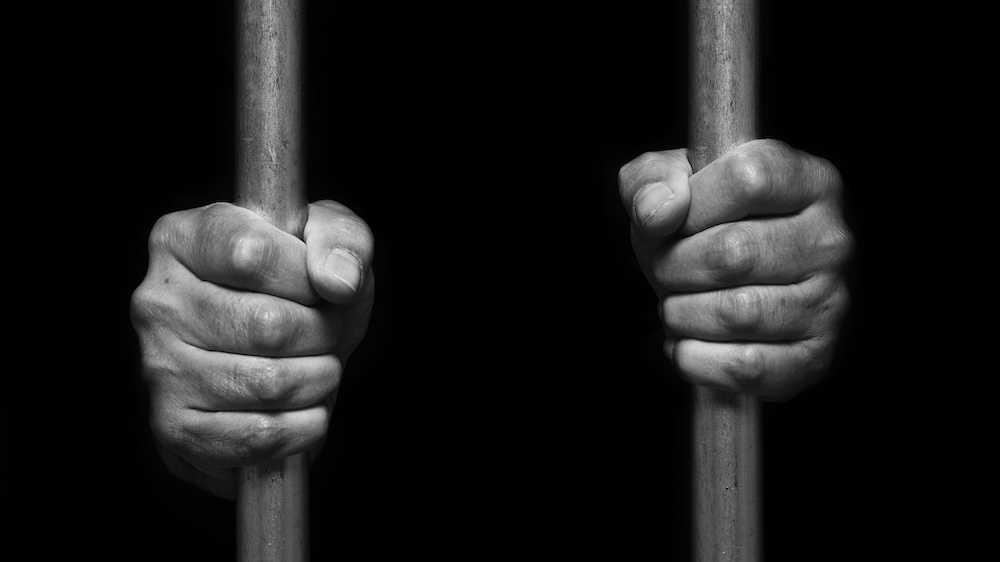If you’re interested in sharing your opinion on any cultural, political or personal topic, create an account here and check out our how-to post to learn more.
Opinions are the writer’s own and not those of Blavity's.
____
Michigan isn’t immune to the partisan politics that have divided lawmakers across the country. Still, Republicans and Democrats in Michigan recently worked together to tackle an important problem that required urgent attention and creative solutions: reform of our jails. Through that bipartisan action, Michigan has become a national leader in reforming our criminal justice system. We recognized that we were jailing too many people, for too long, often for offenses too minor to warrant such treatment. In Michigan, we put politics aside to enact real, lasting change. Now, we’re calling on legislators in other states to join us.
When we took a hard look at jails across the state, we learned that Michigan’s jail population had nearly tripled in 40 years, but the increase wasn’t driven by crime, which has fallen steadily over the last half-century. We were filling our jails with people who had committed low-level offenses, like missing a court date or driving without a valid license. Many of them should’ve received a ticket or treatment, not jail time.
Our jail system cost Michigan taxpayers half a billion dollars each year, but that considerable investment wasn’t making Michigan safer. Our jails were being used to harshly punish thousands of residents who posed no threat to their neighbors. We were incarcerating people accused of committing minor offenses just long enough for them to lose their jobs and financial stability, disrupting their lives, their families and their communities in the process.
None of these problems are unique to Michigan — they exist in your state, too. Nationally, spending on jails tops $25 billion, according to recent research from The Pew Charitable Trusts. That’s a six-fold increase from 1977. The number of people incarcerated in U.S. jails has swelled over the last few decades. People of color are disproportionately impacted, as are people in rural counties, where there are fewer drug treatment options and other alternatives to incarceration.
In Michigan, we tackled these issues through bipartisan action. We created a state task force with support from the highest levels of state government, and made policy recommendations to improve our jails. Those recommendations became the basis of a bipartisan package of legislation that Governor Gretchen Whitmer signed into law in January. Even before these bills passed, we watched as many states released people from jail to stop the spread of COVID-19, proving what we knew to be true — that it’s possible to make fewer arrests and release more people from jail without increasing crime.
During an election year defined by partisan politics and a deadly pandemic, lawmakers came together around our shared values and pushed through real change. As a result, jails in the state of Michigan will now be used to address actual threats to public safety, not criminalize our most vulnerable residents.
We ended the use of driver’s license suspension as punishment for things other than dangerous driving. We decriminalized many misdemeanors and made more low-level offenses eligible for a citation rather than arrest. We changed probation and sentencing laws to keep people who aren’t dangerous out of jail.
Our work isn’t done. Just this month, Governor Whitmer announced a new initiative to comprehensively examine and reform our juvenile justice system. This Task Force is the first of its kind in Michigan and will center youth voices and lived experiences.
This session, state leaders will seek to expand pretrial release, so people are not kept in jail just because they can’t afford bail. They’ll also look at diverting people with mental health disorders away from jails to programs and facilities better equipped to treat them.
We are proud of the progress we’ve made, aim to do more and invite lawmakers around the country to join us in taking on America’s jail problem. Michigan legislators know that, through bipartisan collaboration and bold policy, we can uphold justice, protect public safety and change lives. We know that if broad, sweeping change is possible in Michigan, it is possible in your state.
____
Garlin Gilchrist is the lieutenant governor of Michigan.
